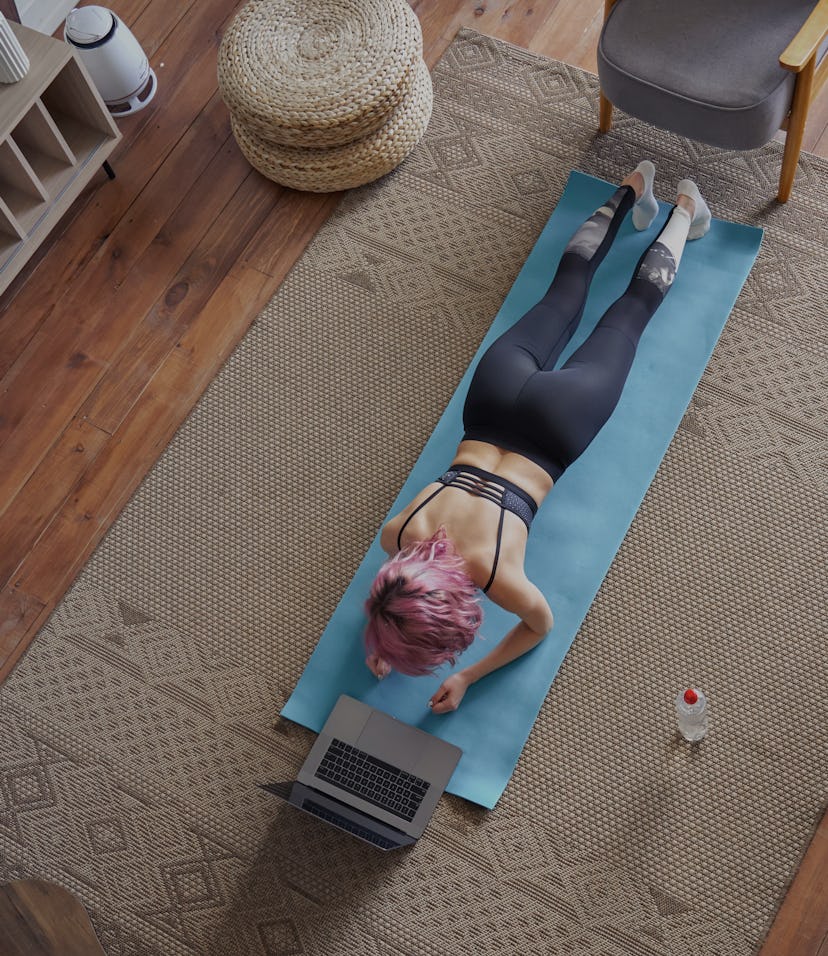CES 2021
Could COVID-19 change our tolerance for expensive home fitness tech?
High tech yoga was once laughed off as a frivolous purchase. The pandemic, however, could change its public image.

If gym rats could tell you anything about the COVID-19 pandemic, it's that the virus threw their fitness routines totally off balance when it first began. Gyms were shut down, social distancing went into effect, and the idea of holding a group fitness class in person or even touching a public treadmill became objectively unnerving. It didn't take long for the fitness tech industry — a burgeoning sector that globally generated revenue of at least $94 billion in 2019 alone — to spot this problem and offer in-home alternatives. Smart yoga mats like YogiFi's artificial intelligence-powered mat, which was a CES Innovation Award honoree in 2020, suddenly didn't sound like a bad idea when it reappeared at the CES this year.
Pre-COVID, consumers would have likely rolled their eyes at high tech yoga (we sure did). But fitness lifestyles have unmistakably changed during the pandemic with countless working out from home and missing in-person guidance from coaches and trainers. If apps like OpenFit are winning people over, smart yoga mats and similar fitness gadgets may also see an increase in consumer demand due to the pandemic... assuming they can deliver before we're all vaccinated, that is.
YogiFi has a chance to impress — The smart yoga mat comes with its own YogiFi app, which allows users to pick "Freemium sessions" and see how their posture is during a yoga workout. There are environmental themes, like doing a yoga session as if you're in the Himalayas or by the seashore.
The smart mat also keeps track of where your hands and feet need to be for positions like upward dog, it monitors your heart rate, and also keeps you updated with how many calories you burn in a session. Through the app, you can receive step by step guidance on different positions and its creators say that the smart mat comes with "aroma therapeutic dispensers" inside the fabric so that you have an immersive experience.
High-tech yoga's future — YogiFi isn't the only contender in the arena of high tech yoga. For several years now, the creators of these mats and apps claim that their gadgets have the ability to simulate the adjustments of an actual yoga teacher.
SmartMat is another high tech mat and its creators claim that it helps emulate human instruction for yoga enthusiasts. There's also Glow Mat which uses pressure sensors to guide you through physical postures. Mats like Tera also use lights to guide you through a workout. And they're not cheap either. Smart yoga mats can cost as much as $400 apiece.
In all likelihood, high tech yoga mats might appeal to a small group of fitness junkies who are able to splurge on expensive items without flinching. Its future seems limited to a niche crowd. But if the creators bring the price down a few notches, or can get it to market swiftly enough, they could win a dedicated following.